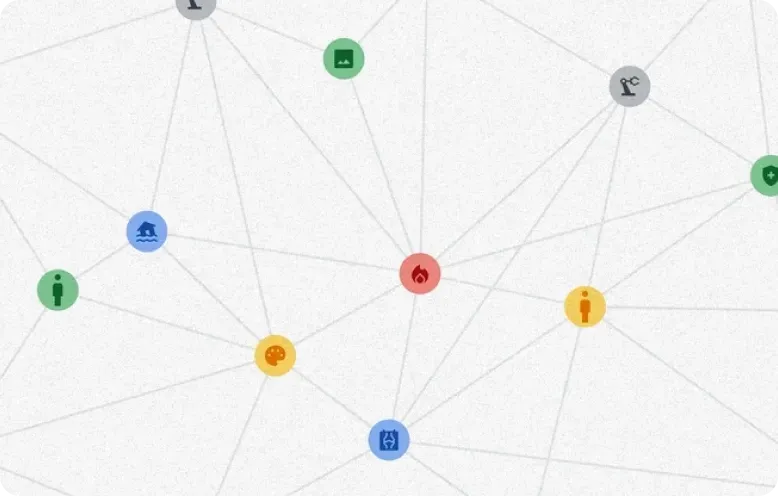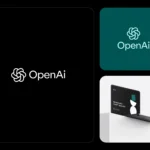Recent developments surrounding Google AI policy changes have sparked intense debate regarding the ethical implications of artificial intelligence in military and surveillance applications. Once renowned for its guiding principle, “Don’t be evil,” Google has shifted its focus under the umbrella of Alphabet Inc., now promoting the idea of “doing the right thing.” This transition marks a significant departure from the company’s earlier commitment to avoid AI surveillance contracts and military collaborations, a stance that drew significant public scrutiny during the Project Maven controversy. As AI technology responsibility becomes a critical focus, the company’s new guidelines reflect a willingness to engage with defense and governmental entities, raising concerns about the potential misuse of advanced AI technologies. With the recent updates, the tech giant seeks to redefine its role in the AI landscape while navigating the delicate balance between innovation and ethical accountability.
In light of the recent shifts in corporate governance, the updates regarding Google’s approach to artificial intelligence have raised eyebrows within the tech community and beyond. The company’s new policy framework reflects a marked change in direction, particularly as it relates to military partnerships and surveillance technologies. This pivot has reignited discussions around the ethical responsibilities of tech giants like Alphabet Inc., especially in terms of their involvement in government contracts that leverage AI for contentious purposes. As the landscape for AI ethics evolves, the implications of these changes not only influence corporate strategies but also the broader societal impact of AI technology. Navigating the intersection of innovation and ethical responsibility is now more crucial than ever for organizations like Google.
Google’s Shift from ‘Don’t Be Evil’ to AI Ethics
In a notable reversal, Google has shifted away from its original mantra, ‘Don’t be evil,’ which once served as a guiding principle for its operations. The decision to drop this slogan from its code of conduct in 2018 coincided with increased involvement in AI technology contracts with government entities, particularly in military applications. This change reflects a broader trend within the tech industry, where companies grapple with the ethical implications of their innovations, especially when it comes to AI and surveillance.
Following the controversial Project Maven, which utilized Google’s AI for drone surveillance, the company faced intense public scrutiny. The backlash highlighted the tension between technological advancement and ethical responsibility, prompting Google to release a set of AI principles. These principles aimed to reassure stakeholders that the company would not engage in projects that could lead to significant harm, particularly in relation to weaponry and surveillance activities. However, the ongoing collaborations with military and government sectors raise questions about the sincerity of these commitments.
The Project Maven Controversy and Google’s Military Collaborations
Project Maven marked a pivotal moment for Google, as it was revealed that the company was leveraging its AI capabilities for military drone operations. This partnership sparked outrage among employees and activists who argued that Google was straying from its ethical commitments. The ensuing debate around AI surveillance contracts illuminated the complex relationship between technology companies and military applications, highlighting the ethical dilemmas posed by such collaborations.
Despite the backlash, Google has continued to maintain ties with the military, expanding its role in areas like cybersecurity and healthcare. Sundar Pichai’s comments underscore a strategic pivot, suggesting that while the company may not directly develop AI for weaponry, it remains open to supporting military endeavors that it deems ethically acceptable. This positioning raises critical questions about the responsibilities of tech giants in ensuring that their innovations do not contribute to harm or violate human rights.
AI Technology Responsibility in the Era of Surveillance
As AI technology becomes increasingly integrated into military operations, the responsibility of companies like Google to uphold ethical standards is more crucial than ever. The proliferation of AI surveillance tools poses significant risks to privacy and civil liberties, demanding a reevaluation of how such technologies are deployed. Google’s ethical framework, which includes commitments against harmful applications of AI, will be put to the test as the company navigates its ongoing collaborations with government agencies.
The challenge lies in balancing innovation with ethical responsibility. While AI has the potential to enhance operational efficiency and effectiveness in various sectors, including defense, it also raises profound ethical concerns about surveillance and the potential for misuse. Google’s approach to AI technology responsibility must evolve to address these issues, ensuring that its innovations contribute positively to society while remaining mindful of the implications of their deployment.
Google AI Policy Changes: What You Need to Know
Recent updates to Google’s AI policies signal a shift in how the company approaches its technological responsibilities. The new principles outlined by the company emphasize bold innovation and responsible deployment, reflecting a commitment to ethical AI development. With the inclusion of a dedicated blog post discussing these changes, Google aims to foster transparency and invite public engagement regarding its AI practices.
These policy changes come in response to both internal and external pressures for greater accountability. By establishing clear guidelines around the use of AI in sensitive areas, including military applications, Google hopes to mitigate concerns about the ethical implications of its technology. However, the effectiveness of these policies will ultimately depend on how rigorously they are enforced and whether they can address the complexities presented by AI surveillance contracts and military collaborations.
The Role of Alphabet Inc. in Shaping AI Ethics
As the parent company of Google, Alphabet Inc. plays a pivotal role in shaping the ethical landscape of AI technology. With its extensive resources and influence, Alphabet has the potential to set industry standards for responsible AI development. The company’s recent focus on ethical principles reflects a growing recognition of the need for corporate responsibility in the face of rapid technological advancement.
Alphabet’s commitment to AI ethics is particularly relevant in light of its ongoing military collaborations. By prioritizing ethical considerations in AI development, Alphabet can help to navigate the complexities of government contracts while addressing public concerns about surveillance and weaponization. The challenge remains for the company to uphold these commitments in practice, ensuring that its innovations align with widely accepted ethical standards.
Exploring AI Surveillance Contracts: Implications for Society
AI surveillance contracts have become a contentious issue, raising important questions about privacy, security, and the ethical use of technology. As companies like Google engage in partnerships with government agencies, the implications of these contracts extend far beyond the immediate operational goals. Society must grapple with the potential for abuse and the impact on civil liberties, making it imperative for tech companies to adopt transparent practices.
The debate surrounding AI surveillance highlights the need for comprehensive regulations that govern the use of such technologies. As stakeholders call for greater accountability, companies involved in AI contracts must be proactive in addressing public concerns. This includes clearly communicating the intended use of AI technologies and ensuring that safeguards are in place to protect individuals from potential harm.
Navigating Ethical Challenges in AI Development
The rapid evolution of AI technology presents a myriad of ethical challenges that require careful navigation. Companies like Google must confront the realities of their involvement in AI projects that intersect with military applications and surveillance. This intersection raises critical questions about the moral implications of their innovations and the responsibility they bear in preventing misuse.
To effectively address these challenges, a collaborative approach involving technologists, ethicists, and policymakers is essential. By fostering dialogue and engaging with diverse perspectives, companies can develop a more nuanced understanding of the ethical landscape surrounding AI. This collaborative effort is crucial for establishing guidelines that prioritize human rights and mitigate the risks associated with AI technology.
The Future of AI Ethics in Technology Companies
The future of AI ethics hinges on the ability of technology companies to adapt to evolving societal expectations and regulatory frameworks. As public scrutiny intensifies, companies like Google must prioritize transparency and accountability in their AI operations. This shift is not only essential for maintaining public trust but also for ensuring that technological advancements align with ethical standards.
Looking ahead, the integration of ethical considerations into AI development will become increasingly important. Companies will need to proactively engage with stakeholders, including customers, regulators, and advocacy groups, to shape a responsible framework for AI technology. By prioritizing ethical practices, technology companies can ensure that their innovations contribute positively to society while safeguarding against potential abuses.
Collaborative Progress: The Key to Responsible AI Development
Collaborative progress represents a vital principle in the responsible development of AI technology. By working alongside stakeholders from various sectors, technology companies can ensure that their innovations are guided by diverse perspectives and ethical considerations. This approach fosters accountability and encourages companies like Google to remain committed to their ethical principles.
As AI technology continues to evolve, the importance of collaboration cannot be overstated. Engaging with governments, civil society, and industry peers allows companies to share best practices and develop robust ethical frameworks. This collective effort is essential for navigating the complex landscape of AI surveillance and military applications, ensuring that advancements in technology serve the greater good.
Frequently Asked Questions
What are the recent changes to Google AI policy regarding military collaborations?
Google’s recent AI policy changes indicate a shift towards accepting military collaborations, despite previously committing to refrain from using AI for weapons or surveillance. This transition reflects the company’s evolving stance on government contracts involving AI technology responsibility, particularly in areas like cybersecurity and veterans’ healthcare.
How did the Project Maven controversy influence Google’s AI ethics?
The Project Maven controversy in 2018 significantly impacted Google’s AI ethics, leading to public backlash and employee protests. In response, Google initially established principles to avoid AI usage in harmful technologies, but recent policy changes suggest a relaxation of these commitments, allowing for broader military collaborations.
What is Alphabet Inc.’s stance on AI surveillance contracts following the policy changes?
Following the recent policy changes, Alphabet Inc. appears more open to AI surveillance contracts, moving away from its previous strict guidelines against using AI for surveillance and weaponry purposes. This shift raises concerns about the ethical implications of such collaborations.
How do the new AI policy changes align with Google’s historical commitment to ethics?
The new AI policy changes at Google, which emphasize bold innovation and collaborative progress, mark a departure from its historical commitment to ethics encapsulated in the ‘Don’t be evil’ slogan. This change has led to criticisms regarding the responsibility in AI technology deployment, particularly in military contexts.
What are the implications of Google’s abandonment of the ‘Don’t be evil’ motto for AI ethics?
The abandonment of the ‘Don’t be evil’ motto by Google implies a significant shift in its approach to AI ethics, suggesting that the company may prioritize business interests over ethical considerations in AI technology responsibility. This change raises questions about accountability in AI applications, especially in sensitive areas like military collaborations.
What principles does Google emphasize in its latest AI policy changes?
In its latest AI policy changes, Google emphasizes three main principles: Bold innovation, Responsible development and deployment, and Collaborative progress. These principles guide the company’s approach to AI technology responsibility and its collaborations with various sectors, including the military.
How has employee feedback influenced Google’s AI policy regarding military projects?
Employee feedback played a crucial role in shaping Google’s AI policy, particularly during the backlash against Project Maven. While initial responses led to commitments against military AI projects, recent policy changes suggest that employee concerns may not have fully deterred the company’s engagement in military collaborations.
What can we expect from Google regarding future AI technology responsibility?
Given the recent policy changes, we can expect Google to adopt a more flexible approach toward AI technology responsibility, particularly in military and surveillance contexts. This could lead to increased collaborations with government entities, raising discussions about the ethical implications of such partnerships.
| Key Point | Details |
|---|---|
| Abandonment of AI Policy | Google has abandoned its commitment not to use AI for weapons or surveillance. |
| Change of Slogan | Replaced ‘Don’t be evil’ with ‘Do the right thing’ after restructuring in 2015. |
| Removal from Code of Conduct | The slogan ‘Don’t be evil’ was removed from Google’s code of conduct in 2018. |
| Project Maven | In 2018, Google faced backlash for its contract with the U.S. Department of Defense using AI for drone imaging. |
| Principles Statement | Google outlined principles to avoid AI applications that cause harm, including weapons and surveillance. |
| CEO’s Clarification | Sundar Pichai emphasized collaboration with governments in areas other than developing AI for weapons. |
| New AI Policy | A recent blog post discusses new AI policy changes with principles of bold innovation, responsible development, and collaborative progress. |
Summary
Google AI policy changes indicate a significant shift in the company’s approach towards the use of artificial intelligence. Historically, Google maintained a commitment to not utilize AI for military or surveillance purposes, adhering to the principle of ‘Don’t be evil.’ However, recent developments reveal that Google is now willing to engage in partnerships that involve these technologies. With the removal of this slogan and the introduction of new principles emphasizing innovation and collaboration, Google is redefining its role in the AI landscape. This marks a pivotal moment for the company, as it navigates the fine line between technological advancement and ethical responsibility.








